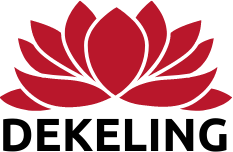We received this generous invitation on a vitally important topic, and wanted to share it.
Dear colleagues,
You are warmly invited to join us for the Inaugural UBC Himalaya Program Annual Lecture on March 7, 2022, 6:00 – 7:30 PM PST (online) with Ven. Prof. Karma Lekshe Tsomo about “Gender in Himalayan Buddhism: Glacial Shifts in Attitudes and Institutions.”
https://himalaya.arts.ubc.ca/events/event/gender-in-himalayan-buddhism-glacial-shifts-in-attitudes-and-institutions/
Please register here: https://bit.ly/32hp8wa
Abstract: The very mention of Himalayan Buddhism conjures visions of an exotic tradition. A gong reverberating amidst resonant baritone voices. A red-robed monk gliding serenely off into the sunset. Delightful young acolytes giggling and blowing bubbles. But where are the women and how long will it take for them to get in the picture?
Although there are many inspiring images of awakened women in Buddhist iconography, conditions on the ground are not always as enlightened. In the Himalayan region, almost all religious leaders are male and contradictions between the Buddha’s egalitarian teachings and the patriarchal structuring of Buddhist institutions are stark. In recent years, however, significant changes have been taking place for Buddhist women around the world. Major challenges still lie ahead but the shift in attitudes and opportunities for women in Himalayan Buddhist societies has been quite remarkable. What accounts for this shift? Awakening, the goal of the Buddhist path, is ultimately beyond gender. The challenge is to how to translate this noble ideal into practice, for the good of all.
About the speaker: Ven. Prof. Karma Lekshe Tsomo is a renowned specialist in Buddhist studies and a Professor at the University of San Diego. Her research interests include women in Buddhism, death and dying, Buddhist feminist ethics, Buddhism and bioethics, religion and politics, Buddhist social ethics, and Buddhist transnationalism. She integrates scholarship and social activism through the Sakyadhita International Association of Buddhist Women and Jamyang Foundation, an innovative education project for women in developing countries, with fifteen schools in the Indian Himalayas, Bangladesh, and Laos.
With best wishes,
Dr. Dagmar Schwerk (she/her/hers)
Khyentse Foundation Postdoctoral Fellow in Tibetan Buddhist Studies
Department of Asian Studies | Himalaya Program
University of British Columbia | Vancouver Campus | Musqueam Traditional Territory
